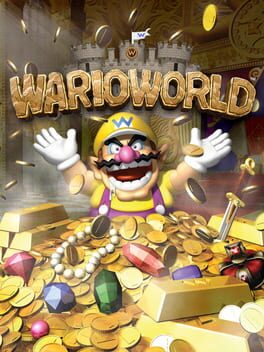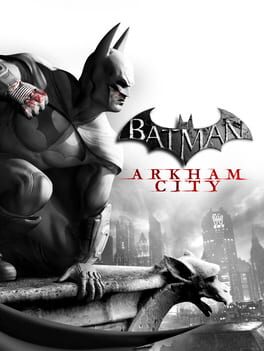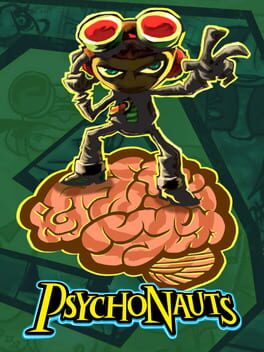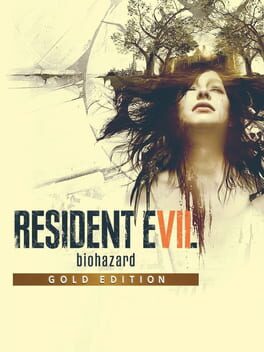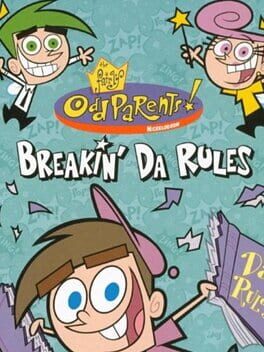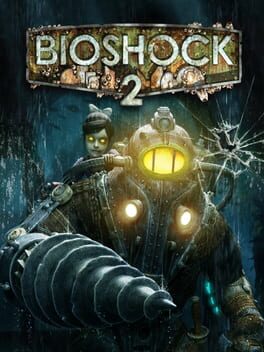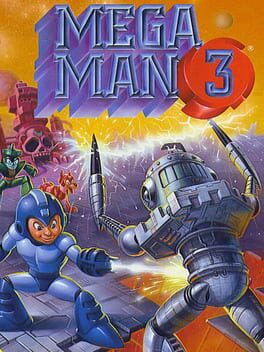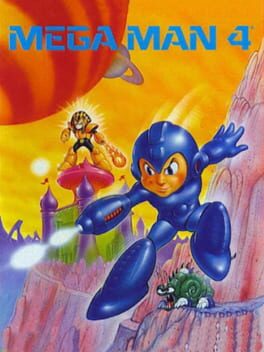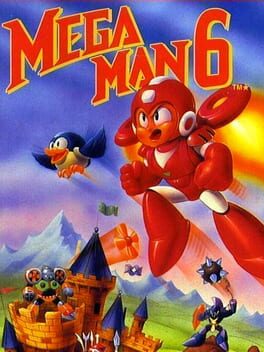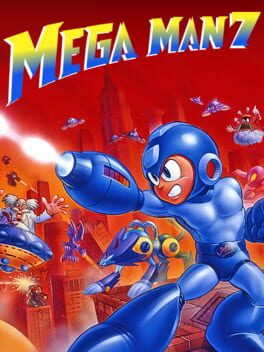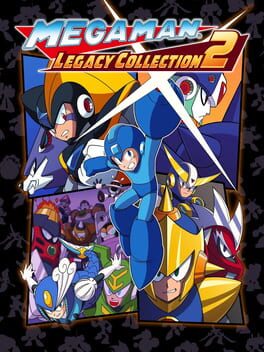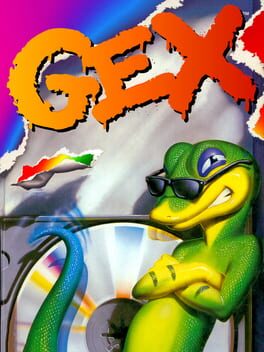RandomContent
I thought diluting the first 10% of FF7 into a full-fledged, AAA game was a terrible idea on paper; I love being wrong.
Beautiful graphics, an excellent soundtrack, pacing that is nowhere near as bad as I thought it would be and probably my favorite combat system in any RPG make for an experience that captivated even me, even as someone who did not grow up with the original game.
I found a strong sense of attachment to the characters, due in no small part to the excellent facial animations and lovably-corny writing. This game is very at peace with its sense of camp, and I love it for that. I found the main heroes to all be lovable and distinct, the villains to all be the kind of mustache-twirling caricatures I'd want to see in such a tale and the story overall to have some surprisingly powerful themes and ideas.
However, had I hated the story, I still would not have walked away from FF7 remake with nothing, as the gameplay was fantastic as well. A main team of four members, each with different strengths and weaknesses, reward an experimental approach to different combat scenarios. I felt a true sense of accomplishment once I had cleared this game's hardest difficulty, as doing do without intimate knowledge of this system would be virtually impossible. This game has fabulous enemy variety and one of the best boss rosters I have seen in years. I cannot discuss my favorite boss in the game without going into spoilers, but I will say that chapter 9: the City that Never Sleeps, will be remembered as one of the greatest levels in video game history. I truly wish I could discuss it here, but I would not dare spoil it for those who hadn't seen it.
Even some factors which I had thought would bother me on a second playthrough turned out to be nonissues. Some of the worse level design, such as in chapter 10, didn't bother me because none of the chapters outstayed their welcomes in my opinion. Learning the layout of the different slums and then having them all come together in chapter 14 was satisfying, and the added fast-travel system made exploration reasonable.
The game's issues are minor but worth mentioning. Firstly, Sephiroth's inclusion in the game feels unnecessary. The majority of the game sets up the Shinra President as the main antagonist. While Sephiroth does get a lot of focus, he does nothing to deserve it in my opinion. The games conclusion shifts all focus to him and it plays a large role in the game's final level and ending feeling rushed, underwhelming and overall the weakest part of the game.
Also, the abundance of new narrative elements added for the remake, while well-written and enjoyable in the moment, added very little to the overall experience. Many plot elements felt unnecessary and didn't deserve their screen time. At worst, I did get Hobbit Trilogy flashbacks. I feel some chapters could have been combined together, (chapters 5-7 could have been folded into 2), and some chapters could have been side quests or sections within other chapters, (chapters 4, 10 and 11 come to mind). I'm not saying an chapters should have been removed, but some could have been shortened.
Lastly, while I enjoyed every main character in the game, I didn't care for many of the minor NPCs. They were often unpleasant to talk to, and their facial animations were easily the ugliest things in the game. I hope the sequel puts more effort into them.
Small grievances aside, FF7 Remake is a fantastic overall package I can recommend even to those who were not engrossed by the original game. It brings me joy to see such a beloved game brought into the new generation, and I am excited for what part 2 will bring.
Beautiful graphics, an excellent soundtrack, pacing that is nowhere near as bad as I thought it would be and probably my favorite combat system in any RPG make for an experience that captivated even me, even as someone who did not grow up with the original game.
I found a strong sense of attachment to the characters, due in no small part to the excellent facial animations and lovably-corny writing. This game is very at peace with its sense of camp, and I love it for that. I found the main heroes to all be lovable and distinct, the villains to all be the kind of mustache-twirling caricatures I'd want to see in such a tale and the story overall to have some surprisingly powerful themes and ideas.
However, had I hated the story, I still would not have walked away from FF7 remake with nothing, as the gameplay was fantastic as well. A main team of four members, each with different strengths and weaknesses, reward an experimental approach to different combat scenarios. I felt a true sense of accomplishment once I had cleared this game's hardest difficulty, as doing do without intimate knowledge of this system would be virtually impossible. This game has fabulous enemy variety and one of the best boss rosters I have seen in years. I cannot discuss my favorite boss in the game without going into spoilers, but I will say that chapter 9: the City that Never Sleeps, will be remembered as one of the greatest levels in video game history. I truly wish I could discuss it here, but I would not dare spoil it for those who hadn't seen it.
Even some factors which I had thought would bother me on a second playthrough turned out to be nonissues. Some of the worse level design, such as in chapter 10, didn't bother me because none of the chapters outstayed their welcomes in my opinion. Learning the layout of the different slums and then having them all come together in chapter 14 was satisfying, and the added fast-travel system made exploration reasonable.
The game's issues are minor but worth mentioning. Firstly, Sephiroth's inclusion in the game feels unnecessary. The majority of the game sets up the Shinra President as the main antagonist. While Sephiroth does get a lot of focus, he does nothing to deserve it in my opinion. The games conclusion shifts all focus to him and it plays a large role in the game's final level and ending feeling rushed, underwhelming and overall the weakest part of the game.
Also, the abundance of new narrative elements added for the remake, while well-written and enjoyable in the moment, added very little to the overall experience. Many plot elements felt unnecessary and didn't deserve their screen time. At worst, I did get Hobbit Trilogy flashbacks. I feel some chapters could have been combined together, (chapters 5-7 could have been folded into 2), and some chapters could have been side quests or sections within other chapters, (chapters 4, 10 and 11 come to mind). I'm not saying an chapters should have been removed, but some could have been shortened.
Lastly, while I enjoyed every main character in the game, I didn't care for many of the minor NPCs. They were often unpleasant to talk to, and their facial animations were easily the ugliest things in the game. I hope the sequel puts more effort into them.
Small grievances aside, FF7 Remake is a fantastic overall package I can recommend even to those who were not engrossed by the original game. It brings me joy to see such a beloved game brought into the new generation, and I am excited for what part 2 will bring.
2003
Video Game junk food: brief, unsubstantial, and satisfying in the moment.
I wouldn't claim bashing large droves of enemies as the garlic-loving glutton isn't fun for a time, but the combat is so simplistic and unvaried that it manages to wear out its welcome before the end of Wario World's short campaign. The collectibles can be satisfying to earn, but there are far too many of them, and they serve as little more than fleeting dopamine cookies in the long run. Still, I have to recommend going for 100% in this game, because you'll be done in about an hour otherwise.
Buy the game cheap and take it for what it's worth, you'll have a good time, a short time, but a good one.
I wouldn't claim bashing large droves of enemies as the garlic-loving glutton isn't fun for a time, but the combat is so simplistic and unvaried that it manages to wear out its welcome before the end of Wario World's short campaign. The collectibles can be satisfying to earn, but there are far too many of them, and they serve as little more than fleeting dopamine cookies in the long run. Still, I have to recommend going for 100% in this game, because you'll be done in about an hour otherwise.
Buy the game cheap and take it for what it's worth, you'll have a good time, a short time, but a good one.
2011
The magnum opus of the 3D superhero game.
Succinctly conveying everything worth loving about the caped crusader's night in Arkham City may very well be beyond this review's skill. From Arkham City's exciting opening to its chilling end, the game provided varied gameplay, meaningful side quests, and memorable characters all supported by one of the best stories ever told about Batman. The improved presentation, new gameplay mechanics, and fantastic boss fights made the flaws of the previous game feel like distant memories. So many of Batman's iconic characters make appearances without ever feeling forced redundant. Collecting Riddler trophies is satisfying, the side quests often rival the main quest in urgency, and the gameplay is so strong that the combat/stealth side modes can provide hours of senseless fun.
It was hard for me to convey everything great about this game, I just adored it. Ten years later, and it has aged like a fine wine. I don't think we will ever have a better superhero game.
Succinctly conveying everything worth loving about the caped crusader's night in Arkham City may very well be beyond this review's skill. From Arkham City's exciting opening to its chilling end, the game provided varied gameplay, meaningful side quests, and memorable characters all supported by one of the best stories ever told about Batman. The improved presentation, new gameplay mechanics, and fantastic boss fights made the flaws of the previous game feel like distant memories. So many of Batman's iconic characters make appearances without ever feeling forced redundant. Collecting Riddler trophies is satisfying, the side quests often rival the main quest in urgency, and the gameplay is so strong that the combat/stealth side modes can provide hours of senseless fun.
It was hard for me to convey everything great about this game, I just adored it. Ten years later, and it has aged like a fine wine. I don't think we will ever have a better superhero game.
2005
There's plenty I like about Psychonauts, but I don't like it as a game.
The game is worth experiencing at least once for sure, providing a surreal, charming, and unconventional experience which could only have come from the mind of Tim Schafer. Psychonauts brings to life such entertaining characters and ingenious levels that I would recommend at least watching a playthrough to see this delightfully absurd tale you couldn't have seen anywhere else. But, this doesn't change the fact that I don't think the game is fun to play.
Item collecting in this game can be insanely-tedious, the platforming is often frustrating, and the combat is shallow and underwhelming. The countless abilities provided to you in the game feel cluttered and unhelpful. I rarely made use of them and when I did I still didn't enjoy the combat or the platforming. The ideas were brilliant for sure, but the gameplay wore me down with its repetition and lack of polish too much for a second playthrough to be appealing.
I don't love this game, but I really wish I did. I would love to say I enjoyed this game as much as Grim Fandango, but that game just provided an experience that, while certainly shorter and less varied; was much more polished, compact, and focused. To those out there who love Psychonauts to death, that's great. I honestly wish I could relate. Perhaps part 2 will provide the 3D platforming bliss I'd wanted in part 1. I'm going to start it soon, fingers crossed!
The game is worth experiencing at least once for sure, providing a surreal, charming, and unconventional experience which could only have come from the mind of Tim Schafer. Psychonauts brings to life such entertaining characters and ingenious levels that I would recommend at least watching a playthrough to see this delightfully absurd tale you couldn't have seen anywhere else. But, this doesn't change the fact that I don't think the game is fun to play.
Item collecting in this game can be insanely-tedious, the platforming is often frustrating, and the combat is shallow and underwhelming. The countless abilities provided to you in the game feel cluttered and unhelpful. I rarely made use of them and when I did I still didn't enjoy the combat or the platforming. The ideas were brilliant for sure, but the gameplay wore me down with its repetition and lack of polish too much for a second playthrough to be appealing.
I don't love this game, but I really wish I did. I would love to say I enjoyed this game as much as Grim Fandango, but that game just provided an experience that, while certainly shorter and less varied; was much more polished, compact, and focused. To those out there who love Psychonauts to death, that's great. I honestly wish I could relate. Perhaps part 2 will provide the 3D platforming bliss I'd wanted in part 1. I'm going to start it soon, fingers crossed!
If you play Resident Evil 7, you need to play this version.
The base game of RE7 was already a strong experience: with a thick atmosphere, decent gameplay, and gripping story. But, Gold Edition takes everything that made the base game good and builds on it beautifully. The different side modes add new story details and character moments that bring closure to the main game and make it better in hindsight. The added gameplay variety is an excellent touch as well; there are a whopping 8 sidemodes added in this package, at least doubling the amount of content from the standard game, and no two modes play alike. I liked every single side mode to some degree, and I can't imagine the game without them.
Re7's DLC package may be among the best in gaming history, and I can't recommend the game without it.
The base game of RE7 was already a strong experience: with a thick atmosphere, decent gameplay, and gripping story. But, Gold Edition takes everything that made the base game good and builds on it beautifully. The different side modes add new story details and character moments that bring closure to the main game and make it better in hindsight. The added gameplay variety is an excellent touch as well; there are a whopping 8 sidemodes added in this package, at least doubling the amount of content from the standard game, and no two modes play alike. I liked every single side mode to some degree, and I can't imagine the game without them.
Re7's DLC package may be among the best in gaming history, and I can't recommend the game without it.
2010
I've played some amazing sequels in my day; this is not one of them.
Strap in yall, this one is going to be long.
Part two is a step backwards in every conceivable way. The fascinating themes, implicit characterization, haunting atmosphere, sharp writing, subtle worldbuilding, and air-tight cohesion of the first game is mostly, if not completely gone. The sad thing is that many of Bioshock 2's ideas are good, many of its characters have promise, and many of the changes made to gameplay were for the better. Hell, the game fixed my two biggest issues with the previous game(the pipe minigame and the binary endings). I feel like these ideas would have worked brilliantly in a different game, but they don't fit here.
Sophia Lamb could have been a strong antagonist, but she doesn't fit the world of Bioshock at all; she feels more like a Harry Potter villain than a Bioshock villain, and she could never compare to Andrew Ryan in terms of dialogue, presence, or ideology. Some changes to gameplay were improvements, but they take away from the atmosphere just as much as they add to the fun. It is hard to be scared when I'm this overpowered and the enemies need to be this ludicrous in order to pose a challenge. I played the game on the highest difficulty and rarely felt in any danger. I also feel the emotional connection between Elanor and Delta could have been very strong, but the two needed more time together for it to resonate, and the game's structure didn't allow for that. And, both as a follow-up to Bioshock 1, and as a story on its own, this game has far too many plot holes.
The next paragraph is just plot holes
How is the city still habitable with all those leaks from the first game? Why were Lamb, Alexander, or Sinclair never mentioned in the first game? How did all these non-splicer characters survive in Rapture for ten years? Why is Delta the only Big Daddy who can use plasmids!? How was Elanor able to revive Delta and why did she wait ten years to do it!?! How are there still so many splicers in the city eight years after Jack left!!?!! If Lamb could sever Delta and Elanor's bond by temporarily stopping her heart WHY DIDN'T SHE DO IT SOONER!!!!!? Why don't the splicers attack the little sister I take control of when I use her to gather ADAM? THEY ATTACKED EVERY OTHER TIME, AND SHE'S RIGHT THERE!!! Why... in her great wisdom... did Elanor choose to revive Delta ON THE OPPOSITE SIDE OF THE CITY!!!!!!!!?!!!!!!!! You could have brought me back at the chamber right outside your room! THANKS FOR NOT SAVING ME A TRIP ELANOR.
So, it sounds like I'm not the biggest fan of this game... I'm not. You may ask the question, 'why recommend it at all? Why a score as high as even a seven?' A valid question, the answer: Minerva's Den.
This DLC campaign is everything the main game should have been. It's a bit shorter obviously, but most of Bioshock 2 felt like filler anyway, so a more concise game was a nice change of pace. Minerva's Den brings back the atmosphere and sophisticated storytelling from the first game, as well also having a plot twist that, while it certainly wouldn't rival that of the first game's plot twist, is still gripping and well-deserved reveal. Minerva's Den is also a blast to play, adding so many new weapons and plasmids to make it really stand out from the main campaign. This is honestly one of the best DLCs out there, and I enjoyed it quite a bit more than the main game. The protector trials were fun too.
I must recommend this game, just to experience Minerva's Den. Play the main campaign if you want.
Strap in yall, this one is going to be long.
Part two is a step backwards in every conceivable way. The fascinating themes, implicit characterization, haunting atmosphere, sharp writing, subtle worldbuilding, and air-tight cohesion of the first game is mostly, if not completely gone. The sad thing is that many of Bioshock 2's ideas are good, many of its characters have promise, and many of the changes made to gameplay were for the better. Hell, the game fixed my two biggest issues with the previous game(the pipe minigame and the binary endings). I feel like these ideas would have worked brilliantly in a different game, but they don't fit here.
Sophia Lamb could have been a strong antagonist, but she doesn't fit the world of Bioshock at all; she feels more like a Harry Potter villain than a Bioshock villain, and she could never compare to Andrew Ryan in terms of dialogue, presence, or ideology. Some changes to gameplay were improvements, but they take away from the atmosphere just as much as they add to the fun. It is hard to be scared when I'm this overpowered and the enemies need to be this ludicrous in order to pose a challenge. I played the game on the highest difficulty and rarely felt in any danger. I also feel the emotional connection between Elanor and Delta could have been very strong, but the two needed more time together for it to resonate, and the game's structure didn't allow for that. And, both as a follow-up to Bioshock 1, and as a story on its own, this game has far too many plot holes.
The next paragraph is just plot holes
How is the city still habitable with all those leaks from the first game? Why were Lamb, Alexander, or Sinclair never mentioned in the first game? How did all these non-splicer characters survive in Rapture for ten years? Why is Delta the only Big Daddy who can use plasmids!? How was Elanor able to revive Delta and why did she wait ten years to do it!?! How are there still so many splicers in the city eight years after Jack left!!?!! If Lamb could sever Delta and Elanor's bond by temporarily stopping her heart WHY DIDN'T SHE DO IT SOONER!!!!!? Why don't the splicers attack the little sister I take control of when I use her to gather ADAM? THEY ATTACKED EVERY OTHER TIME, AND SHE'S RIGHT THERE!!! Why... in her great wisdom... did Elanor choose to revive Delta ON THE OPPOSITE SIDE OF THE CITY!!!!!!!!?!!!!!!!! You could have brought me back at the chamber right outside your room! THANKS FOR NOT SAVING ME A TRIP ELANOR.
So, it sounds like I'm not the biggest fan of this game... I'm not. You may ask the question, 'why recommend it at all? Why a score as high as even a seven?' A valid question, the answer: Minerva's Den.
This DLC campaign is everything the main game should have been. It's a bit shorter obviously, but most of Bioshock 2 felt like filler anyway, so a more concise game was a nice change of pace. Minerva's Den brings back the atmosphere and sophisticated storytelling from the first game, as well also having a plot twist that, while it certainly wouldn't rival that of the first game's plot twist, is still gripping and well-deserved reveal. Minerva's Den is also a blast to play, adding so many new weapons and plasmids to make it really stand out from the main campaign. This is honestly one of the best DLCs out there, and I enjoyed it quite a bit more than the main game. The protector trials were fun too.
I must recommend this game, just to experience Minerva's Den. Play the main campaign if you want.
1990
And this is how you don't do a sequel.
Basically 2 again just with much more spamming and unfair level hazards and bosses. I would have at least said I liked it more than the first game, but the thing that made me decide against that was the part of the game prior to going to Wily's Castle where you fought recycled bosses from 2 in the same levels you just went through. Shameless padding, thy name is Mega Man 3.
Basically 2 again just with much more spamming and unfair level hazards and bosses. I would have at least said I liked it more than the first game, but the thing that made me decide against that was the part of the game prior to going to Wily's Castle where you fought recycled bosses from 2 in the same levels you just went through. Shameless padding, thy name is Mega Man 3.
1991
1993
1995
I've always had mixed feelings about this one.
The game has some great artwork and satisfying hidden collectables, but it also has some iffy controls and inconsistent difficulty. It was worth seeing the game to its conclusion, but that final boss can suck my mega buster. I don't think my feelings about the game will ever be black and white, but I'm glad I played it.
The game has some great artwork and satisfying hidden collectables, but it also has some iffy controls and inconsistent difficulty. It was worth seeing the game to its conclusion, but that final boss can suck my mega buster. I don't think my feelings about the game will ever be black and white, but I'm glad I played it.
1994
Why are most of this game's most inventive and distinct levels crammed in the optional world most people wouldn't bother to find? Gex, I don't get you.
Seriously, Planet X is a pain in the ass to reach, but it houses the best levels in the game. The rest of the game is a functional, competent 2D platformer, but is very dull and predictable in terms of gameplay mechanics; Gex's quips can be annoying, the game has a really frustrating save system, the level themes are pretty generic, there is a harsh difficulty spike halfway through, and the game is over far too soon. Still, my biggest problem with the game is the repetitive and uninspired gameplay. I respect the game for making its best content optional, which is a trait I honestly associate with the amazing games. But still, this game is nothing special.
If you are curious or a diehard Gex fan then there is no harm in playing this game, but I wouldn't recommend it otherwise.
Seriously, Planet X is a pain in the ass to reach, but it houses the best levels in the game. The rest of the game is a functional, competent 2D platformer, but is very dull and predictable in terms of gameplay mechanics; Gex's quips can be annoying, the game has a really frustrating save system, the level themes are pretty generic, there is a harsh difficulty spike halfway through, and the game is over far too soon. Still, my biggest problem with the game is the repetitive and uninspired gameplay. I respect the game for making its best content optional, which is a trait I honestly associate with the amazing games. But still, this game is nothing special.
If you are curious or a diehard Gex fan then there is no harm in playing this game, but I wouldn't recommend it otherwise.


